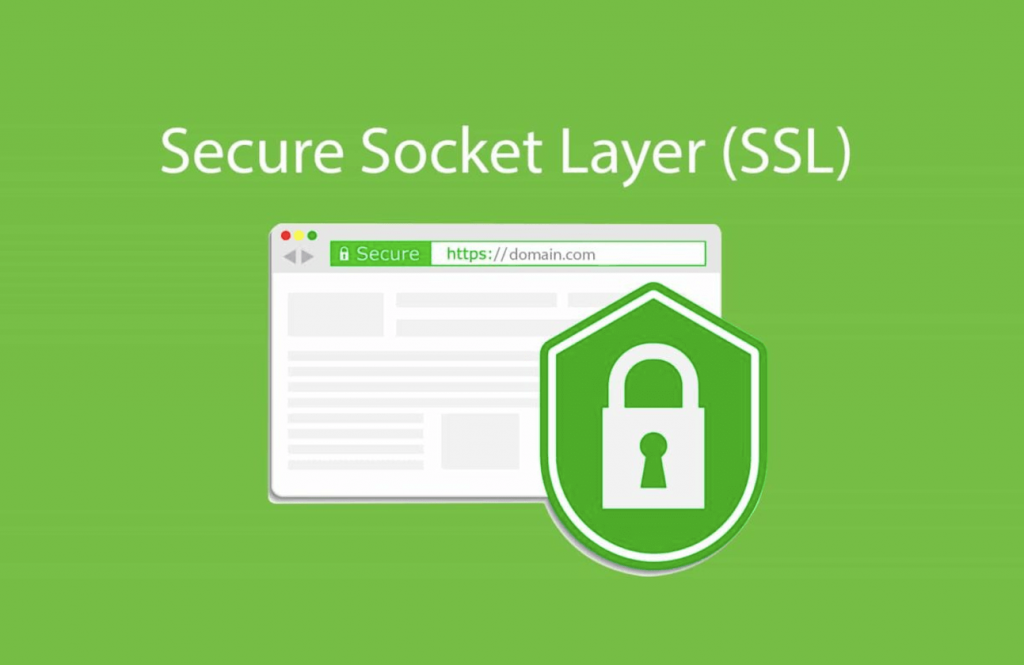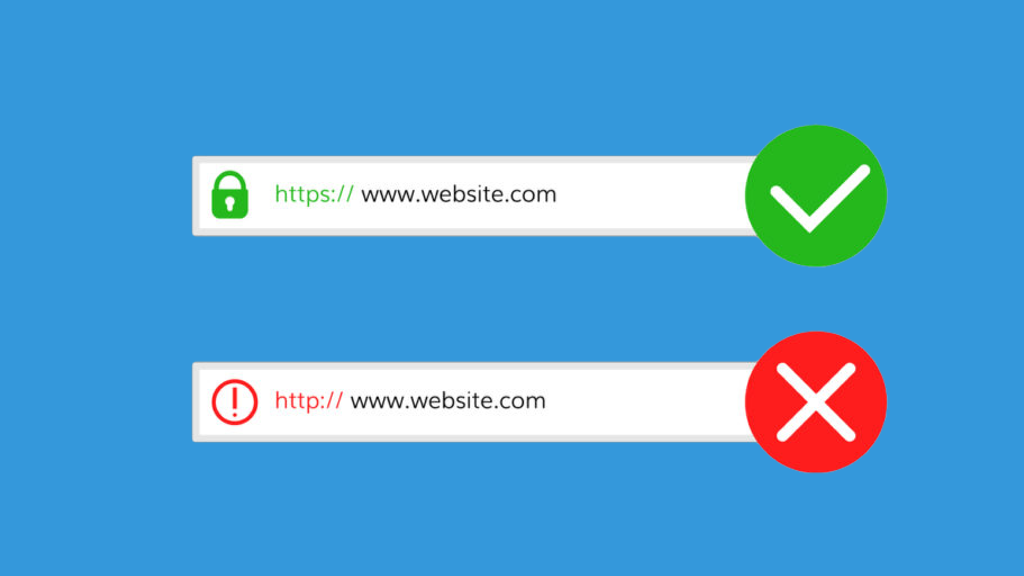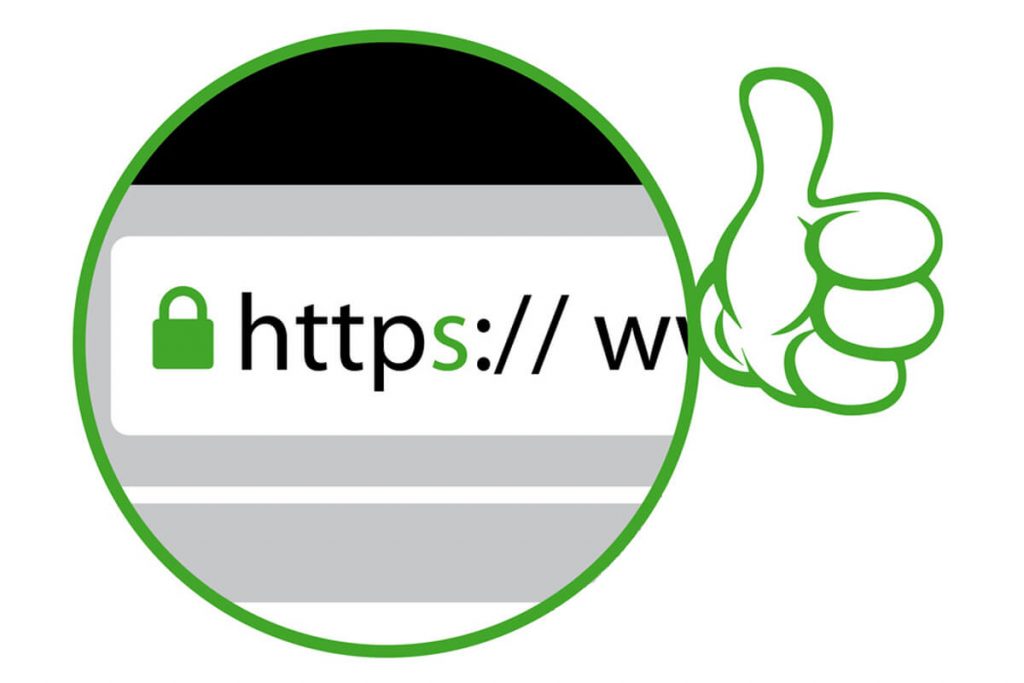In this article we are going to discuss about, What is SSL certificate and types of SSL certificate you can use for your website. The reasons behind this are very clear, we are in the digital age where almost all the business are getting their digital footprint on the web. With increasing number of website cybersecurity awareness has also been increasing rapidly. People are very well aware of the fact that they might be targeted by hackers at any time, which in turn could jeopardise the efficiency of their business, or threaten the privacy of their data. SSL certificates are one way they can protect themselves from this sort of security breach.
Latest research on search engine algorithm updates of Google and Bing has also shown that websites that have a SSL certificate get higher ranking on Google’s SERP (search engine results page). This makes data encryption a significant part of the SEO (search engine optimization) process and, consequently a must for anyone who wants to gain higher organic traffic and visibility via search engines.
What is an SSL (Secure Socket Layer) certificate ?

Every website visit and every entry of information on a website means that information is exchanged between the computer of the visitor and the server, on which the website is hosted. This process is controlled via a data transmission protocol, which also goes by the name Hyper Text Transfer Protocol (http). The secure extension of http is https also known as Hyper Text Transfer Protocol Secure (https). What this extension does is it provides an additional protection layer. In other words, the data exchange between visitor and server takes place in an encrypted manner, in order to prevent a third party access to the transferred information.
On top of this, data that is transferred from the user to the server is also encrypted with its own cryptographic protocol. The first protocol ever used for this purpose was called Secure Sockets Layer (SSL). Netscape developed the original SSL protocols at Netscape Communications between 1995 to 1998. Despite many alterations to the original protocol, the designation SSL stuck in the memory of people, which is why, to this day, we’re still using it. Newer versions of SSL are based on SSL 3.0
SSL certificates allow for your site to be opened in an encrypted form and are linked to your domain server as well as domain name. Once it’s installed on a server, it will activate a security lock and the https-protocol. Especially for e-commerce or online banking sites it is indispensable to have a SSL certificate, because they carry the responsibility of protecting their users’ personal as well as bank data.
How to identify websites with an SSL certificate
Look at the URL of the website in the URL address bar. If it begins with “https” instead of “http” that means the site is secured using an SSL Certificate (the ‘s’ stands for secure). SSL Certificates secure all of your data as it is passed from your browser to the website’s server. In general, we recommend all our readers to never give any kind of personal or banking information to sites that don’t have SSL encryption.

How can you tell if a site features an SSL certificate?
To answer this question, let’s take a look at the two ways in which an SSL certificate can be obtained. For one, there are the self-generated certificates, for which the webmaster issues signs and establishes the cryptographic key himself or herself. Chances are high that your browser will automatically classify this type of certification as untrustworthy and notify your website visitors.
That’s why we recommend the second and more secure option, namely the certificates that are issued by reliable certification authorities (CAs). CAs check the data of the website host more thoroughly to ensure its authenticity. The price of an SSL certificate is usually dependent on the type of certificate, its period of validity and the reputation of the CA.
Now back to the issue of understanding if a site uses an SSL certificate and if it does, what type. First, you have to check if there’s a lock symbol in the address line of the browser. In case there is, you can click on the lock symbol and click “certificate.” Should you want to retrace which trusted CA the website owner chose for the issuance of the SSL certificate, go to “certification path.”
Different types of ssl certificates
Now that we know what SSL certificates are and how to look out for them, let’s turn our attention to the different types of SSL certificates:
Domain Validation Certificate
Organization Validation Certificate
Extended Validation Certificate
1. Domain Validation Certificate
The most basic of all types of SSL certificates is the domain validation (DV) certificate. To get this kind of validation all you have to do is prove that you’re in possession of the respective domain. You can confirm the domain name by for example uploading a file to a website. You can usually obtain this kind of certificate in a matter of minutes. However, the disadvantage of this type of certificate is that while it provides a secure connection it only confirms the domain name and no other details such as the business affiliation, for example.
2. Organization Validation Certificate
A superior version to the DV certificate is the organization validation (OV) certificate. As the name suggests, this option not only certifies a secure exchange between visitor and a website domain, but it also confirms that this domain belongs to a specific company indicated in the certificate. So, as you can see the advantage that the OV certificate has over the DV one is that it not only confirms the domain name, but also the firm name as well as its address. It can take days for an organization validation certificate to be granted.
Fun fact: You can tell whether a website has a DV or OV certificate by the color of the lock in the address line of your browser. If it’s grey then the website has only a DV certificate. If it’s green and followed by the designations “secure” and “https,” it means that the certificate is an OV.
3. Extended Validation Certificate
You can obtain the highest level of SSL certification with the extended validation (EV) certificate. Similar to the OV certificate, it applies stricter criteria. For example, the examination of the website host’s identity is sometimes carried out manually and the applicants for a EV certificate sometimes even have to provide a copy of their identification card.
The sites that have acquired this type of certificate can be recognized by the URL address displaying the name and location of the company in green next to the green lock symbol.
As already mentioned, the EV certificate is the most trustworthy of all types of SSL certificates, which, simultaneously, makes it also the most expensive one. The price can go up to double of what the basic DV certificate costs. This explains why it’s not used by website owners so often.
Which type SSL certificate is for you?

What all SSL certificates have in common is that they all encrypt the information exchanged between user and website owner. The difference between them lies only in the level of disclosure of identity information of the website owner.
So the first question that you should be asking yourself is how much trust do you want to convey to your users.
The second one is how important is your brand quality for you. Do you need your brand name to be displayed in the URL line of your browser or is this rather a secondary element for you?
Lastly, it’s important to know beforehand how many domains you own or plan on owning that require a SSL certificate. At this point, three options present themselves:
Standard certificate: If you have only one domain name that you need secured, then it’s perfectly fine to purchase a standard SSL certificate. With this certificate, you’ll still have the option of choosing between the three validation levels DV, OV and EV.
Multi-Domain certificate: If you, on the other hand, are in possession of several domains, such as example.com, example.net, example.de, then it’s best to purchase a multi-domain certificate. This way you’ll be able to secure multiple domains with one certificate.
Wildcard certificate: For those of you who have one domain with multiple subdomains, the wildcard certificate is recommended. But keep in mind that you can’t have a wildcard certificate with an EV trust level. Should your site only have a few subdomains with multiple domain-nodes, it might be best to consider purchasing a multi-domain certificate which also applies for subdomains. In such cases, they can prove to be the cheaper and more flexible option. Plus, the subdomain certificates are available for all validation levels (DV, OV and EV).
When it comes to enabling https by adding a SSL certificate, the procedure depends on your website hosting provider. For example, we at Gloify choose the best hosting option as per clients requirements and automatically enable the https function for clients. The same goes for expired certificates: we automatically renew them for our clients.


